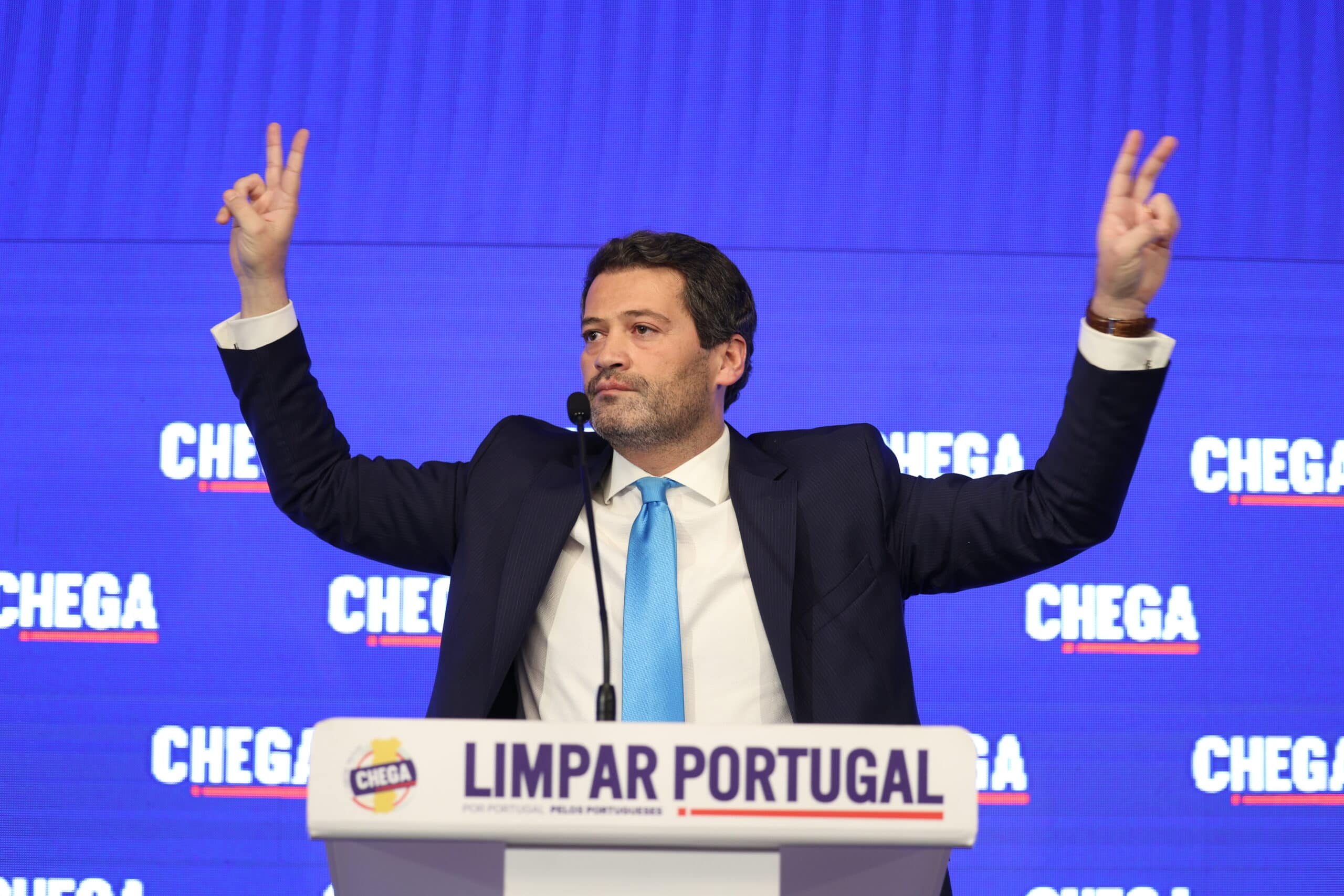Right-wing nationalist party was most voted in Algarve
For the first time since Portugal’s Carnation Revolution in 1974, a party other than PS or PSD (or a coalition featuring one of the two) was the most voted in the Algarve in a legislative election.
The astounding feat was achieved on Sunday by CHEGA, the right-wing nationalist party so often maligned for being “racist and xenophobic” (in the words of outgoing PM António Costa in 2020) and described as far-right – a term and claims that its leader André Ventura continues to reject.
The party, whose name (ENOUGH) describes much of its attitude towards the last 50 years of governance in Portugal, received 27.19% of the votes in the Algarve, beating Portugal’s Socialist Party, PS (25.46%) and the Aliança Democrática (AD) coalition (22.39%), made up of Portugal’s Social-Democratic, PSD; Christian Democrats, CDS-PP; and Monarchist Party, PPM. In other words, 64,228 Algarveans voted for CHEGA, 60,123 voted for PS and 52,885 voted for AD.
Each of these parties will have 3 MPs representing the Algarve in Parliament:
Pedro Pinto, João Graça and Sandra Ribeiro (for Chega); Jamila Madeira, Jorge Botelho and Luís Nunes (for PS); and Miguel Pinto, Cristóvão Norte and Ofélia Ramos (for AD).
CHEGA – which based much of its campaign on its vow to “clean Portugal” (in other words, fight corruption) and tackle issues that other parties dance around or ignore, such as out-of-control immigration – was the most voted party in Portimão, Lagoa, Silves, Albufeira, Loulé and Olhão, while PS finished first in the remaining 10 Algarve municipalities. What’s even more impressive is the margin of victory that the party achieved in some municipalities.
In Portimão – a borough that in 50 years has never known a mayor that is not a socialist, and which in 2022 saw 37.27% of voting citizens vote PS and just 14.20% vote CHEGA in the legislative elections – CHEGA achieved a clear victory, with 30.53% of votes against 23.04% for PS. Lagoa also turned to CHEGA, with 32.14% voting for Ventura’s party against 23.74% voting PS, just like Silves (a municipality ruled by a mayor representing CDU, the coalition comprising Portugal’s Communist Party), where 29,97% of voters chose CHEGA over PS (23.87%), AD (19.37%) and CDU (5.96%). But it was in Albufeira that CHEGA secured its biggest share of votes (32.61%), significantly ahead AD (23.85%) and PS (20.76%). Loulé, home to the Algarve’s famous Golden Triangle, also made a U-turn with 27.58% voting for CHEGA, 25.51% voting for AD and just 23.80% voting for PS (which had won in 2022 with 38.19%). Another massive victory for CHEGA was celebrated in Olhão, where it secured 29.33% of votes against PS’ 26.68%.
Party leaders have yet to react specifically to the results in the Algarve, although anyone who lives or has lived in the region recently will certainly have some idea of why voters turned to a party so many consider to be part of the “radical right”. There is a feeling among a considerable portion of the regional population that the Algarve is often forgotten by decision-makers in Lisbon and that vital issues are simply left on the backburner. The construction of the long-promised Algarve Central Hospital, for example, has been continuously delayed since 2005 by both PS and PSD-led governments. The growing number of immigrants in the region (which authorities have been unable to respond to) may also have influenced why so many Algarveans voted for a party which did not even exist until 2019.
More information on the legislative election results for the Algarve can be consulted online.




















